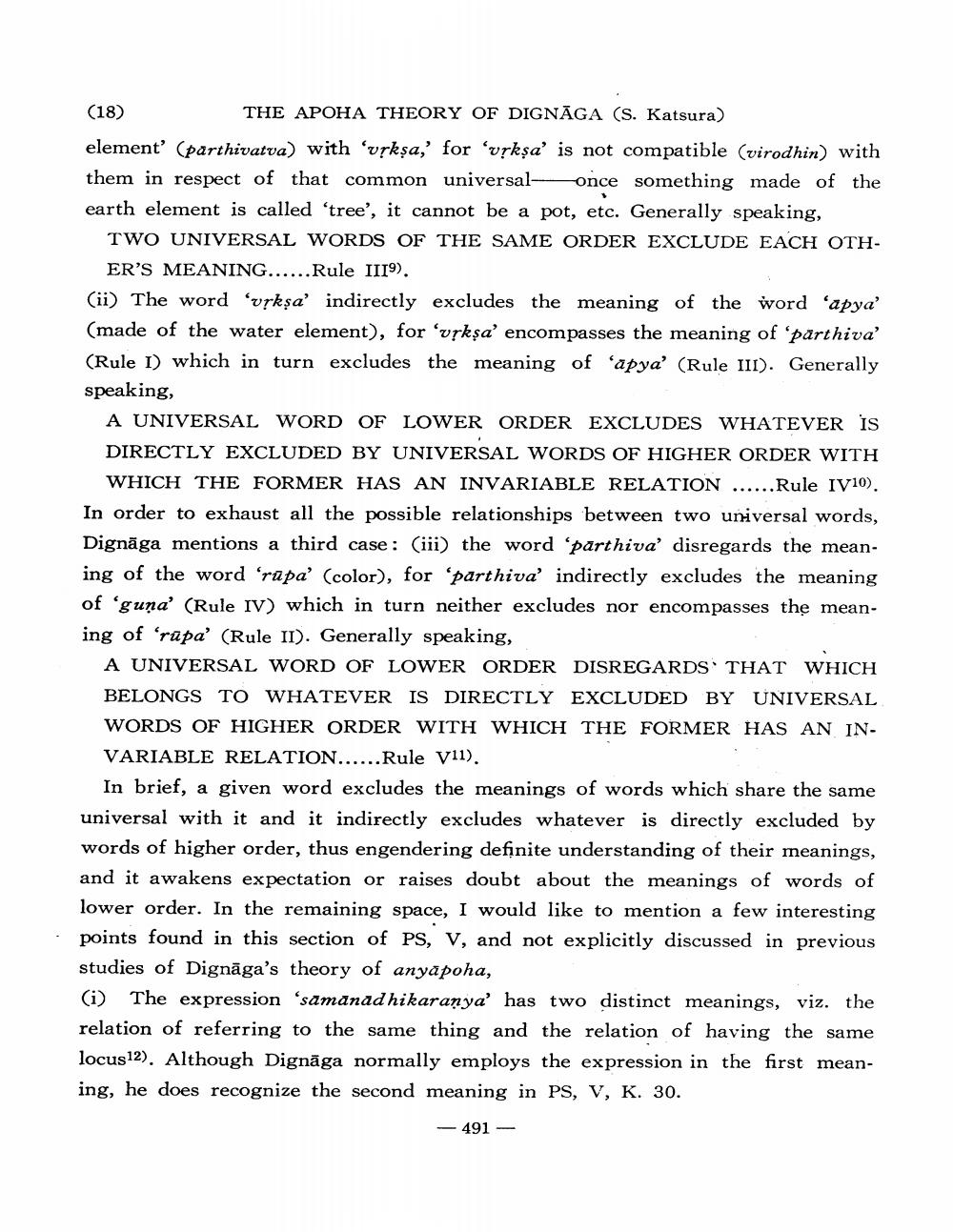Book Title: Apoha Theory Of Dignaga Author(s): Shoryu Katsura Publisher: Shoryu Katsura View full book textPage 3
________________ (18) THE APOHA THEORY OF DIGNAGA (S. Katsura) element' (parthivatva) with 'vrksa,' for 'vrksa' is not compatible (virodhin) with them in respect of that common universal- once something made of the earth element is called 'tree', it cannot be a pot, etc. Generally speaking, TWO UNIVERSAL WORDS OF THE SAME ORDER EXCLUDE EACH OTHER'S MEANING......Rule III9). (ii) The word 'vrksa' indirectly excludes the meaning of the word 'apya' (made of the water element), for 'vrksa' encompasses the meaning of 'parthiva' (Rule 1) which in turn excludes the meaning of 'apya' (Rule III). Generally speaking, A UNIVERSAL WORD OF LOWER ORDER EXCLUDES WHATEVER IS DIRECTLY EXCLUDED BY UNIVERSAL WORDS OF HIGHER ORDER WITH WHICH THE FORMER HAS AN INVARIABLE RELATION ......Rule IV10). In order to exhaust all the possible relationships between two universal words, Dignaga mentions a third case: (iii) the word 'parthiva' disregards the meaning of the word 'rapa' (color), for 'parthiva' indirectly excludes the meaning. of 'guna' (Rule IV) which in turn neither excludes nor encompasses the meaning of 'rapa' (Rule II). Generally speaking, A UNIVERSAL WORD OF LOWER ORDER DISREGARDS THAT WHICH BELONGS TO WHATEVER IS DIRECTLY EXCLUDED BY UNIVERSAL WORDS OF HIGHER ORDER WITH WHICH THE FORMER HAS AN INVARIABLE RELATION......Rule V11). In brief, a given word excludes the meanings of words which share the same universal with it and it indirectly excludes whatever is directly excluded by words of higher order, thus engendering definite understanding of their meanings, and it awakens expectation or raises doubt about the meanings of words of lower order. In the remaining space, I would like to mention a few interesting points found in this section of PS, V, and not explicitly discussed in previous studies of Dignaga's theory of anyapoha, (i) The expression 'samanadhikaranya' has two distinct meanings, viz. the relation of referring to the same thing and the relation of having the same locus12). Although Dignaga normally employs the expression in the first meaning, he does recognize the second meaning in PS, V, K. 30. 491Page Navigation
1 2 3 4 5
